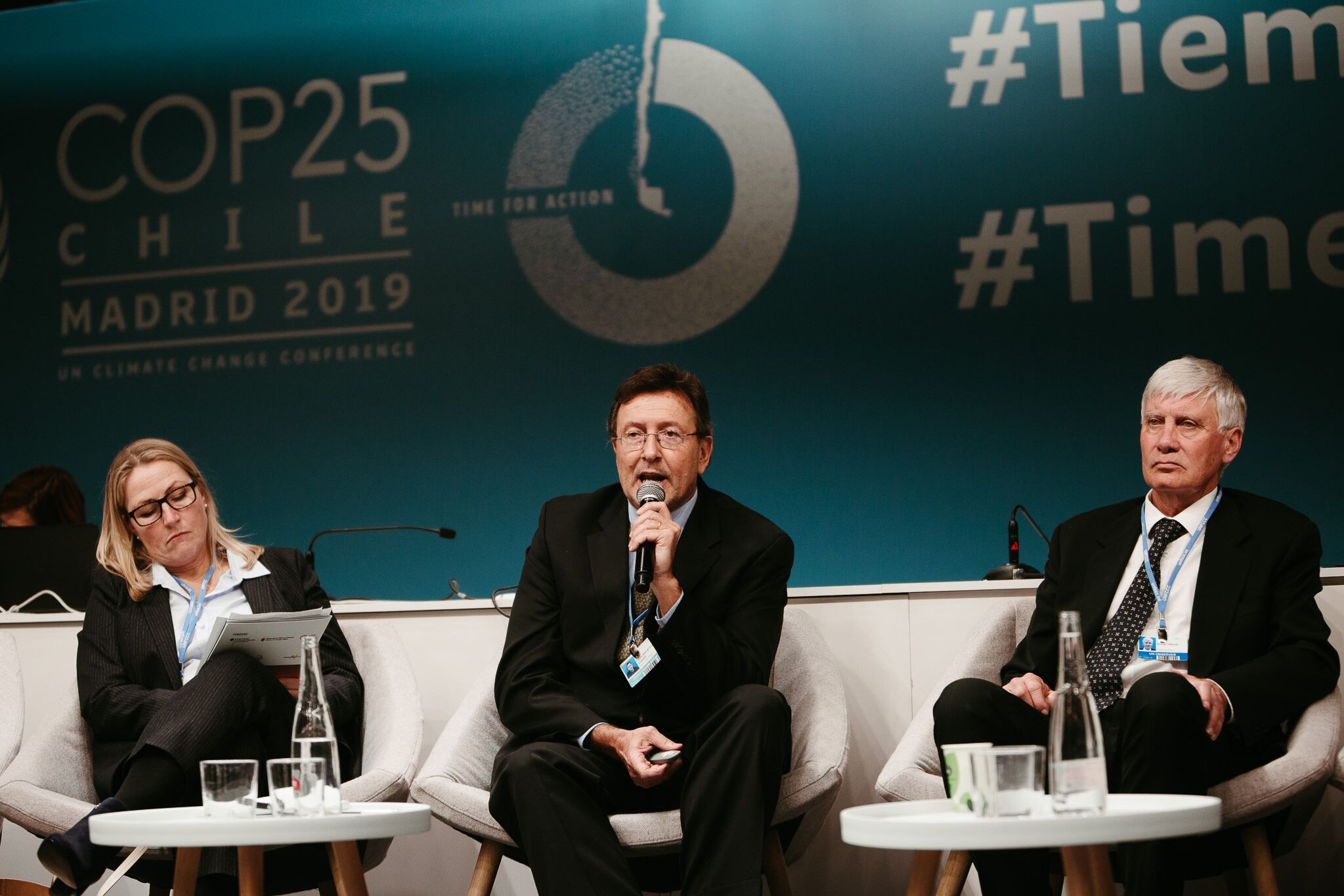International ocean experts kick off COP25 Oceans Actions Day

Discussing the advancing scientific understanding of Blue Carbon Ecosystems, Carlos Duarte, KAUST professor of marine science. (Pictured from left to right): H.E. Helen Agren, ambassador for the ocean, Sweden; Carlos Duarte, KAUST professor of marine science; Bronte Tilbrook, co-chair, Global Ocean Acidification Observing Network. Photo credit: KAUST.
International ocean experts gather to kick off COP25 Oceans Actions Day at the Ocean and Coastal Zones Climate Action event to deliver concrete recommendations on ocean and coastal climate actions, accelerating progress towards global climate goals.
Discussing the advancing scientific understanding of Blue Carbon Ecosystems, Carlos Duarte, KAUST professor of marine science, says: "Fostering the conservation of the world's oceans and marine forests, both as carbon sinks and for the other services they provide, such as nurseries for young fish, including many important edible species, and protection against rising sea levels, storm surges and erosion is a 'no regrets' strategy that poses huge benefits for people and planet."
"Attention must now focus on protecting these communities and restoring most of the habitats lost, especially since around half of the world's mangroves have already been lost. We should not leave any option to restore these habitats unexplored, even in challenging urban environmental in coastal cities. If they are to continue to provide vital ecosystem services, land-use planning must allow mangroves, seagrasses and saltmarshes to move inland as rising sea levels displace them, we simply must leave enough space for them to migrate."
The Ocean and Coastal Zones Climate Action event of the Marrakesh Partnership for Global Climate Action (MPGCA) addresses the results of the UN Climate Summit. It emphasizes the crucial role of the world's oceans and coastal areas in achieving the sustainable development goals (SDGs) on the UN 2030 Agenda.
The experts emphasize how the world's oceans and coasts can play a part in achieving the Paris Agreement global goal for enhancing adaptive capacity, strengthening resilience and reducing our planet's vulnerability to climate change.
"In this way we can mainstream ocean and coastal climate actions for achieving mitigation, adaptation and resilience of communities and local and national economies across scales of governance, a strategy that the Kingdom of Saudi Arabia wants to promote in a leadership role under its G20 Presidency," Duarte continues.
The key outcomes from this event will be delivered at the SDG14-SDG15 High Level Roundtable led by the UNFCCC on December 9.
This MPGCA Action event entitled Oceans and Coastal Zones Climate Action towards 1.5C pathways is organized by the Future Ocean Alliance; the Global Ocean Forum; the International Union for the Conservation of Nature; the Intergovernmental Oceanographic Commission of UNESCO; and the Alliance of Small Island States.

